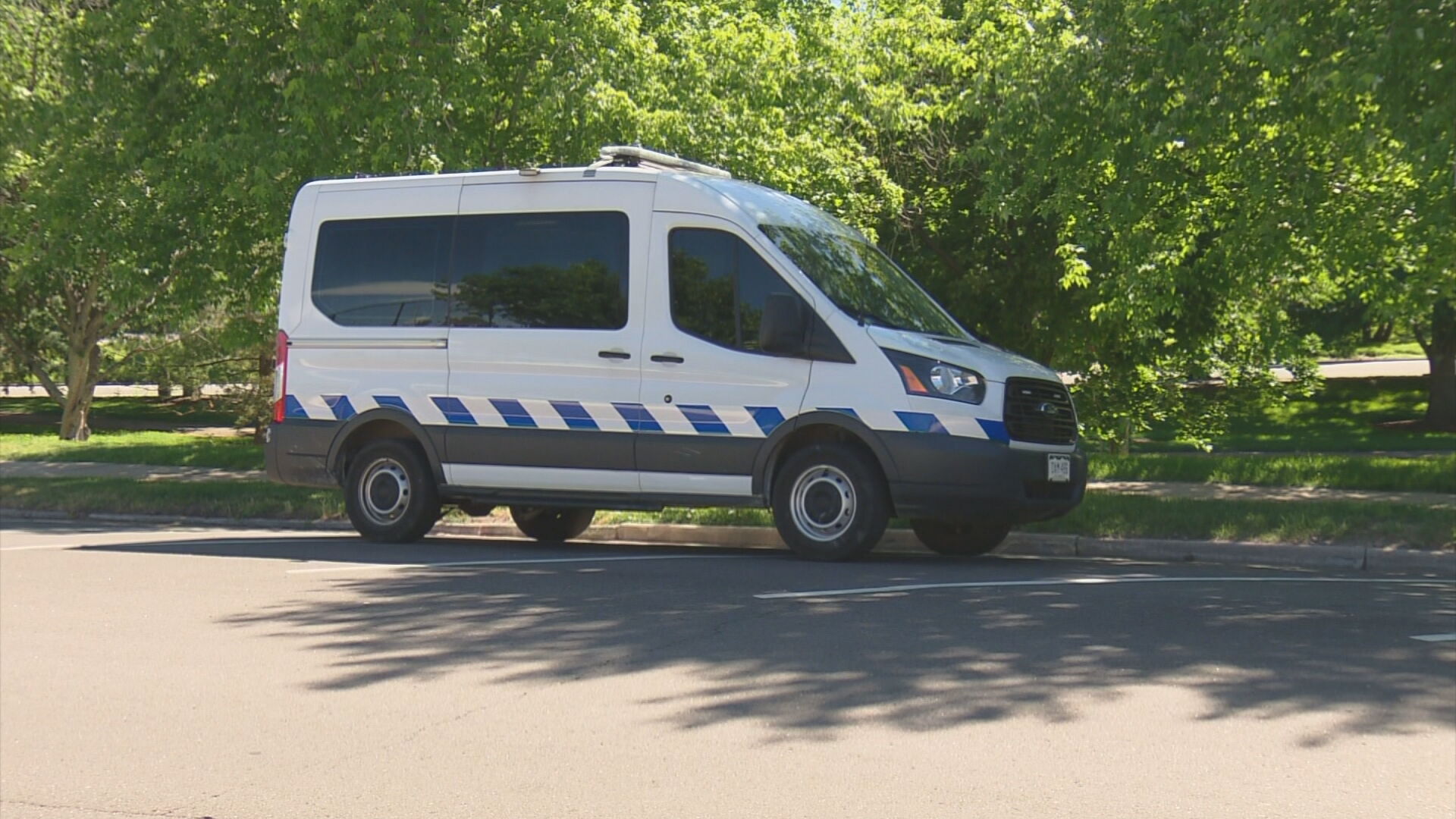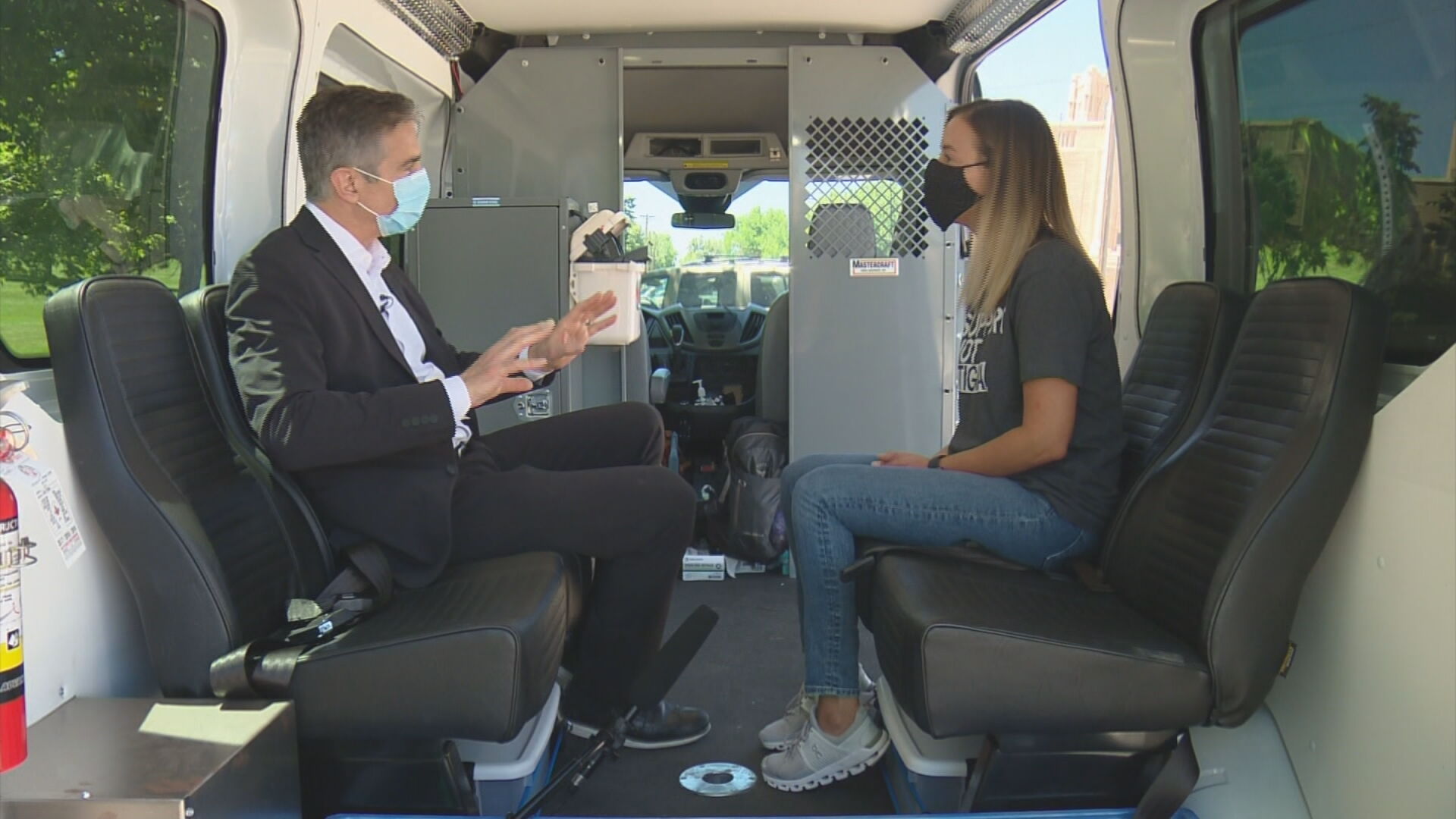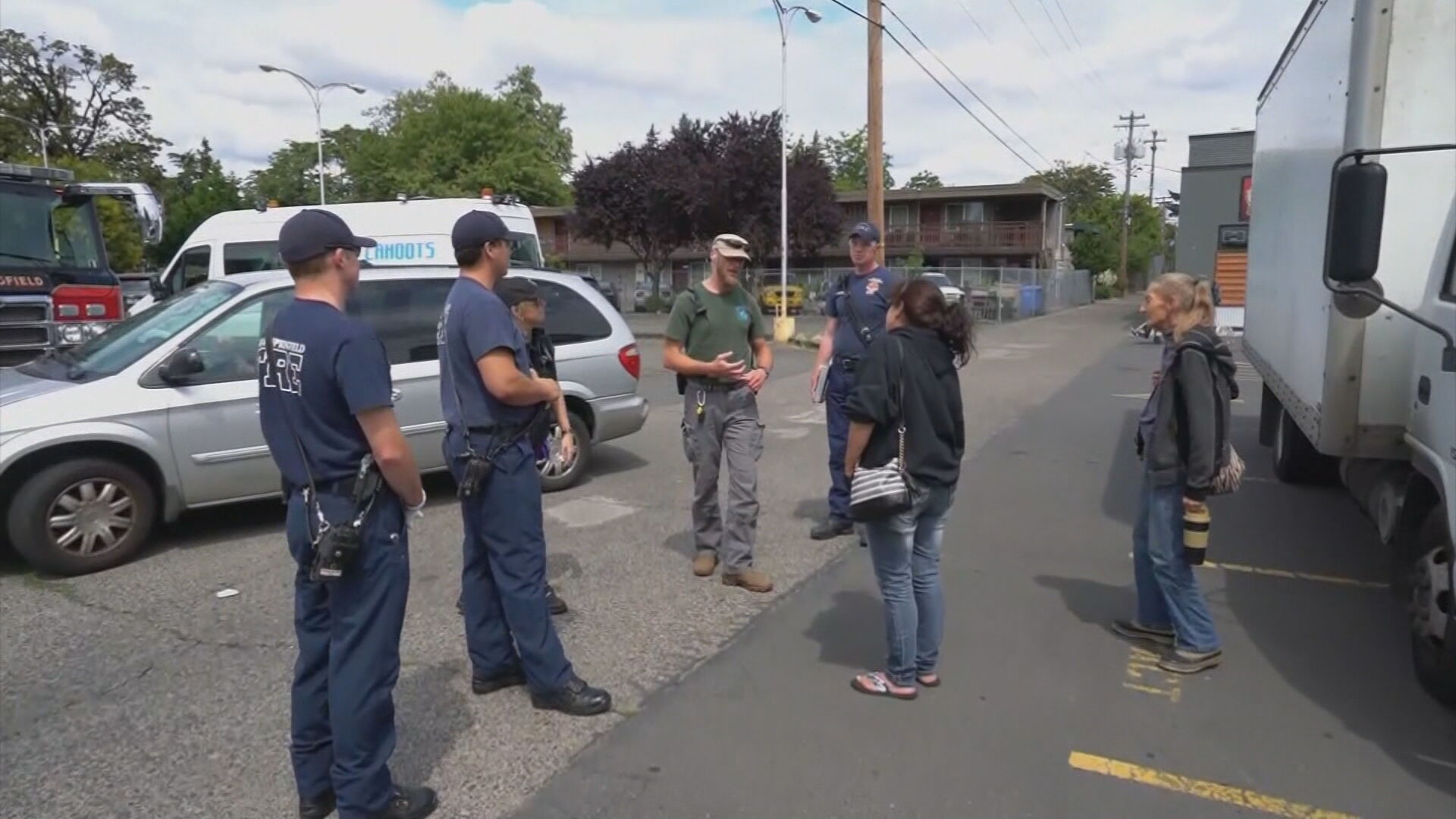Denver CBS 4
Alan Gionet •
June 12, 2020
DENVER (CBS4)– It’s a plain van. Actually a re-purposed vehicle that had been destined for traffic enforcement. Yellow lights on top not blue. There’s no logo yet, but they’re working on it.
“It’s pretty unassuming,” says Carleigh Sailon, program manager for criminal justice services with Mental Health Center of Denver. “Most people have been pretty happy to have it show up and very willing to work with us on solutions.”

(credit: CBS)
The van has been on the streets of Denver since the beginning of June. It follows four years of a so-called, co-responding program in Denver which has put experts on social work, mental health and addiction into police cars with officers. Sailon calls the van, dubbed a “STAR” van for Support Team Assisted Response a “2.0 version.”
“We have sort of recognized responding with the police that oftentimes when we respond to a call the police really aren’t needed and the clinician is sort take over and handle that call completely.”
Mental Health agencies got together with paramedics from Denver Health, using money from the voter approved Caring 4 Denver ballot question voters approved in 2018.
Paramedic Dustin Yancy is one of four who have switched over to the STAR van.
“Maybe we can meet in the middle and have a better understanding of what each one is trying to achieve here.”
Experts know there’s a problem when police show up at an incident.
“If someone’s in crisis and they see a police officer show up you know kind of no matter what that officer is doing people automatically assume they’re in trouble or they may be at risk of going to jail,” says Sailon.
The very presence of a uniformed officer may be triggering.
“This is a non-judgmental approach, a client centered approach,” says Sailon. “We’re focusing on strengths not weaknesses, we’re really trying to meet people where they’re at.”

(credit: CBS)
It is patterned after a system in existence in the small city of Eugene, Oregon, in existence for 29 years. The system there has taken pressure off police, jails and emergency rooms.
“We don’t have necessarily have the right resources at the emergency department but that unfortunately our only avenue is to be able to transport patients to the emergency department,” says Justin Harper, assistant chief of paramedics for Denver Health. “A lot of the calls we run, you know we aren’t necessarily providing the right services by taking somebody and transporting them to the emergency department.”
He was hoping for enough STAR vans to cover every corner of the city if things go as they believe. Money could be saved without incarceration or emergency room treatment as long as there are enough alternative options available that starts with the STAR van notes Harper.
“So having this resource that’s sort of right in the middle where we can find definitive care and specifically get the services that people need.”
Often the STAR van will offer a ride to substance abuse or mental health treatment.
“This just feels so much more appropriate when there isn’t a risk element, when there isn’t a public safety element,” says Sailon. “I can just see that walking up with a paramedic, I’m received differently than when I’m with an officer because of that idea of ‘Oh my goodness am I in trouble?’”

(credit: CBS)
So far on their STAR van runs, they’ve been able to show up when police are already on scene and allow them to leave. They have yet to have to call police for backup. No one is armed in the STAR van.
“Working with the police for a number of years I mean I think there are a lot of things that have wound up on the law enforcement’s plate that really don’t belong there,” says Sailon. “Those are not public safety issues. They are not law enforcement issues. They are public health issues.”